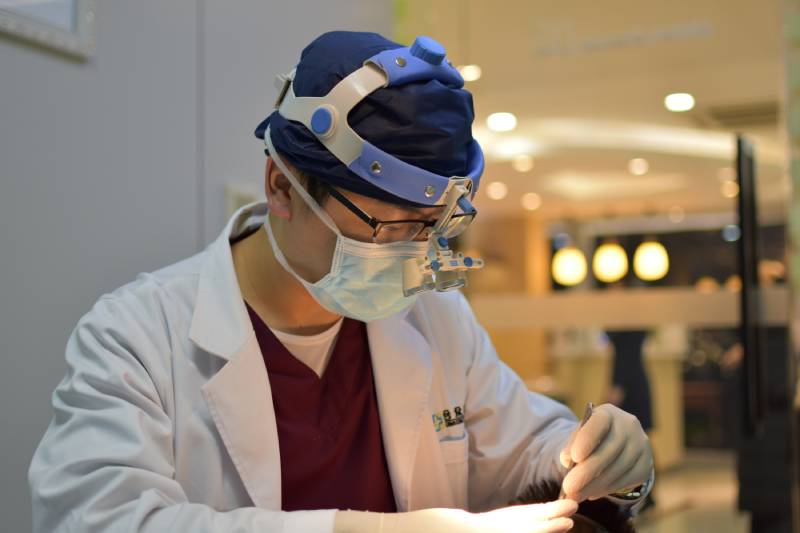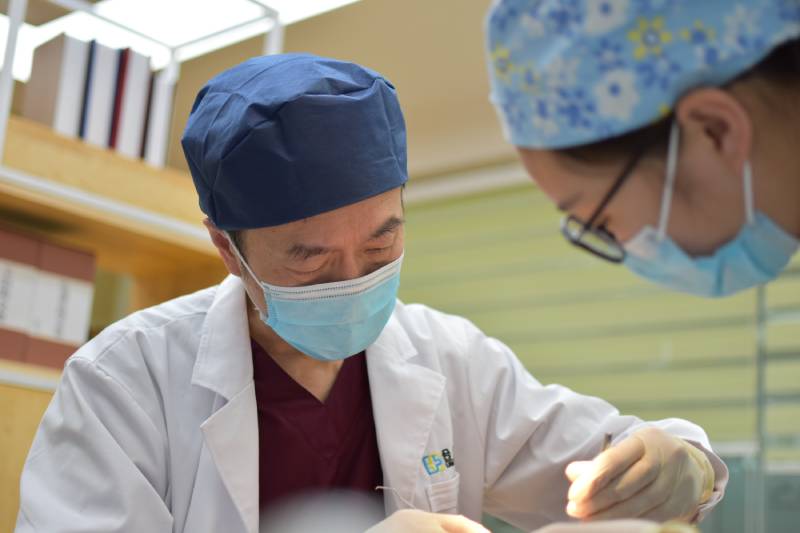More than 80 clinical trials launch to test coronavirus treatments
6 min read
As HIV drugs, stem cells and traditional Chinese medicines vie for an opportunity to demonstrate their value, the WHO tries to bring uniformity to the search.
China has more than 80 operating or pending clinical trials on potential therapies for COVID-19, the disease caused by a unique coronavirus that has thus greatly killed nearly 1,400 people and affected more than 48,000 across China.
New pharmaceutical drugs are arranged beside thousand-year-old traditional treatments in a public registry of China’s clinical trials, which is increasing every day. There is no recognized cure, and doctors are keen to help those with the virus — but scientists advise that only carefully carried trials will decide which actions work.
Soumya Swaminathan, a chief scientist at the World Health Organization, states that its teams have been practicing stock of China’s many trials, as well as picking up a plan for clinical trial rules that could together be run by clinicians around the world. If China’s actions, which carry as many as 600 people each, are not outlined with strict standards for study parameters, such as control groups, randomization and the actions of clinical outcomes, the trials will be in vain. So the WHO is working with Chinese scientists to set criteria from the start.
For example, a person’s stages of improvement or decline should be marked in the same way, regardless of the treatment being tested. “We can surely bring some sort of structure into the entire thing,” Swaminathan explains.
The WHO’s clinical-trial rules are intended to be adaptable and allow researchers around the world to join their results over time. It will analyse two or three therapies backed by scientific proof, including an HIV-drug combination (lopinavir and ritonavir) and an innovative antiviral called remdesivir.
“Getting the clinical trials right is a priority since if we get news on what is working and not achieving, we can help patients now,” Swaminathan says.
Table of Contents
Best guesses
China has already started trials on the drugs to be involved in the WHO’s master plan. The Chinese Clinical Trial Registry, a database of biomedical explores in China, records these investigations between many other controlled preliminaries on being medications, exploratory strategies, and conventional drugs. These strategies have shifting amounts of verification backing their viability.

Coronavirus treatments
The two HIV drugs block catalysts that viruses require to replicate. In animal studies, they have decreased levels of the coronaviruses that induce severe acute respiratory syndrome (SARS) and Middle East respiratory syndrome (MERS)
1. Remdesivir, a nucleotide analogy composed by the biotechnology company Gilead in Foster City, California, has had some progress against coronaviruses in animals, too
2. In January, researchers announced that one person in the United States sustained a COVID-19 infection after being managed with remdesivir.
3. During the first week of February, China began two placebo-controlled trials on remdesivir, slated to incorporate 760 people with COVID-19. The studies should be performed by the end of April, and remdesivir could be recognized by Chinese authorities as early as May, says Shibo Jiang, a virologist at Fudan University in Shanghai. “But the disease might be gone by then,” he says.
China has originated a few trials that test chloroquine, a malaria drug that ruined off the new coronavirus (recently named SARS-CoV-2) in cell culture
4. And researchers are inquiring whether steroids diminish infection in people with severe COVID-19, or induce harm. “It will be interesting to view these results,” says Yazdan Yazdanpanah, an epidemiologist from France’s national health agency, INSERM, in Paris. Experimentation clinicians around the world will require this information if the outbreak extends to spread, he continues.
Another study — a 300-person managed trial — will test serum from COVID-19 survivors. The bare-bones approach, based on the approach that the antibodies one person regularly builds up to fight a virus can rapidly help someone freshly affected to fight it off, has had modest success when used to treat different viruses in decades past
5. Two stem-cell cases are also listed in China’s registry. In one, a group at the First Affiliated Hospital of Zhejiang University will motivate 28 individuals with undifferentiated organisms got from menstrual blood, and contrast results and those from individuals who didn’t get the mixtures.
Until this point in time, there is the least proof showing that immature microorganisms clear coronavirus contaminations. Swaminathan says that the WHO can’t quantify what scientists do, however she says the WHO distributed direction on the standards of running preliminaries between episodes in 2016. Also, the association will post a progressively advantageous, brief report on the impact soon.
Another study — a 300-person managed trial — will test serum from COVID-19 survivors. The bare-bones approach, based on the approach About 15 trials listed in China’s registry require to enroll a total of more than 2,000 people in studies on a diversity of traditional Chinese medicines. One of the largest among them judges Shuang Huang Lian, a Chinese herbal medicine that includes extracts from the dried fruit Lian Qiao (Forsythia Fructus), which is indicated to have been used for treating diseases for more than 2,000 years. The trial has 400 members, including a control group given standard attention but not a placebo therapy.
The WHO is working with Chinese scientists to regulate the design of all the studies, including those on conventional medicines. Their efforts stem from a controversial move last year, in which the standard recognized traditional Chinese medicine in its essence of diseases. Critics argued that the WHO’s recognition amounted to the support, but Swaminathan disagrees.
She says that the WHO’s move benefits the association to arrange therapeutic phrasing so home grown cures can be surveyed with a similar meticulousness expected of pharmaceutical testing.
Moving forward
While these trials take off, researchers continue exploring for new drugs that would fight multiple coronaviruses, including those that haven’t surfaced yet. To drive COVID-19 research, the NIH published ‘urgent award’ grants in preceding February.
With many therapeutic probabilities and limited time, Jiang says the WHO should give advice about which medicines to move forward, and which to leave, as trials progress. And he hopes that analysis on better, broader therapies will be extended after the brawl ends. “I worry this will be the same condition as during SARS,” he says, “where the work origins, then stop.”
Frequently Asked Questions
The current treatment for coronavirus (COVID-19) is supportive care, which means treating the symptoms of the illness to help the patient recover. This may include medications to reduce fever and relieve pain, as well as oxygen therapy for patients with severe respiratory symptoms. There is currently no specific antiviral treatment for COVID-19, but several vaccines are available to help prevent infection.
There is currently no specific cure for coronavirus (COVID-19). The best way to prevent infection is to get vaccinated and to follow public health guidelines such as wearing a mask and practicing physical distancing.
No, antibiotics are not effective against viruses. They are only effective against bacterial infections. Coronavirus (COVID-19) is caused by a virus, so antibiotics are not recommended as a treatment.
Yes, there are several experimental treatments for coronavirus (COVID-19) that are being studied in clinical trials. These include antiviral medications, monoclonal antibodies, and convalescent plasma. It is important to note that these treatments are still being tested and are not yet widely available.
Hydroxychloroquine is a medication that has been studied as a potential treatment for coronavirus (COVID-19). However, the effectiveness of hydroxychloroquine for the treatment of COVID-19 has not been conclusively established. In fact, some studies have suggested that the use of hydroxychloroquine may be associated with an increased risk of serious side effects, such as heart problems. As a result, the use of hydroxychloroquine for the treatment of COVID-19 is generally not recommended.







